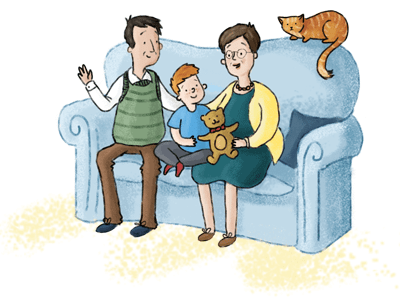
1. Do I need a will?
Yes. Family situations are becoming more and more complicated, and making a will is your chance to choose who you want to deal with your estate and who you want to benefit. We don’t know when our time will be up, so it is best to be prepared and make the process easier for our loved ones who will be left behind.
2. Do I need to change my will if I get divorced?
Divorce does not revoke a will but, once the decree absolute has been issued, an existing will would be interpreted and administered as if your former spouse had predeceased you. However, we recommend that you review or make a will while going through a divorce so it is clear you don’t want that person to benefit from your estate in case something were to happen to you before the divorce is finalised.
3. What happens if I don’t leave a will?
If you pass away without leaving a will, your estate will pass under the rules of intestacy. This is a prescribed, legally binding list of who will benefit from your estate, and depends on your marital status and surviving relatives. Without a will, you can’t presume that your estate will pass to the people you wish to benefit. For example, if you are single without children, your estate under intestacy would pass to your parents, if they have predeceased you, it would pass to any siblings.
4. What is probate?
The Grant of Probate is a court-sealed document issued by the Probate Registry confirming the validity of the will and giving the executors the legal authority to deal with the estate, for example to collect in the assets and sell or transfer any property.
A Grant can still be required where a person dies intestate and they own property or have assets over a minimum amount (each bank has its own limits for this).
5. What is an executor?
The executor is the person named in the will who is appointed to administer your estate in accordance with the terms of the will. It is a responsibility, and you should choose your executor carefully as someone you trust to carry out your wishes. It can be an onerous task and you do not have to act, but once you have started making steps to administer the estate you have intermeddled and you may not then be allowed to step down.
6. What if I don’t get anything from a relative that I was expecting to inherit from?
An individual is free to leave their estate to whoever they wish. However, in certain circumstances, a will can be challenged, or you can make a claim against an estate if you were financially dependent on the person who has passed away. An adult child of independent means would struggle to make a claim. However, a spouse or a co-habiting partner who has not been sufficiently provided for would have a stronger claim.
7. Can I transfer my house to my children?
This is a question we are frequently asked, and my reply would be: Why? Your motivation is a key factor and if it is because you think it will save long-term care fees it is unlikely to work. Local authorities have extended powers to pursue assets in such circumstances. Giving your home to your children while you continue to live in it also makes you vulnerable. Were your children to go through a divorce or bankruptcy and the property was in their name, it would be taken into account as part of their assets. You can leave your house through your will instead.
8. Do I need a Lasting Power of Attorney?
A will deals with your affairs once you have passed away. A Lasting Power of Attorney is where you appoint one or more people as your attorney to deal with your property and finances and/or health and welfare decisions during your lifetime. Lasting Powers of Attorney must be registered with the Office of the Public Guardian before they can be used. A Lasting Power of Attorney can still be used if the donor later loses mental capacity.
If you don’t have a Power of Attorney in place and you do suffer a loss of mental capacity, someone would need to apply to the Court of Protection to be appointed as your Deputy in order to deal with your affairs. This is a more expensive and lengthy process.
9. Should I be worried about inheritance tax?
Inheritance tax is payable if a person’s estate (their assets and property on death) is worth more than £325,000 (current value). Tax is charged at 40% on the value over this limit. Married couples benefit from this allowance being transferable on the second death if it has not been used.
If you need advice on any of the questions above, you are welcome to attend our free legal surgeries which are held every Monday and Thursday from 4.30pm to 5.30pm. No appointment is necessary. Alternatively, please contact one of our experts, who will be happy to help:
Kate Fletcher: kfletcher@bromleys.co.uk
Susanne Furness: sfurness@bromleys.co.uk
Tel: 0161 330 6821
The contents of this article are intended for general information purposes only and shall not be deemed to be, or constitute legal advice. We cannot accept responsibility for any loss as a result of acts or omissions taken in respect of this article.










